The story of Yaroslav Azhnyuk is to some extent the "Ukrainian Dream." It's about how to achieve success and recognition in the world with your own skills and mind.
Yaroslav was born in Kyiv in 1989. He was in Plast, the national scout organization in Ukraine, from the age of 11 to 18 years. He entered Kyiv Polytechnic Institute to obtain a degree in Applied Mathematics. While studying, he began to engage in social and entrepreneurial activities. He founded an Internet marketing company and a public organization to popularize the possibilities of the Internet.
In 2012, Yaroslav's friend, Oleksandr Neskin, created a simple device, at first glance. The neighbors complained about the barking of his dog, Rocky, that he was bored at home while Oleksandr was at work. Therefore, he designed a camera with a laser pointer through which he could play with his pet remotely, via the Internet. The device was so pleasing to all of his friends and colleagues that the guys decided to turn the idea into business. They invited designer Andrey Klen to the team and began to work on the creation of a prototype for mass production.
The development took about 14 months, including training in China. As a result, their idea was placed on Kickstarter - an American crowdfunding platform. The project received the required over $250,000 and the business started.
Petcube, like any good idea, began to gain momentum at a crazy pace. It was recognized as the best Ukrainian startup in 2013 and named the Best European Hardware Startup by The Europas. Today Petcube is a successful brand that offers users several types of devices, a social platform, and develops an algorithm for analyzing the behavior of animals with elements of artificial intelligence. Yaroslav was included in Ukraine's Top 30 Under 30 list of the most successful young Ukrainians according to Forbes. Over this time, the company raised more than $14 million in investment, sold hundreds of thousands of devices in 18 countries. Now they can be bought in over 3,000 stores, and most owners of animals in the United States probably know about it. The company has offices in Kyiv, San Francisco and Shenzhen, and the products themselves are labeled as "Designed in Ukraine, assembled in China."
We talked to Yaroslav Azhnyuk not only about how to bring cats and dogs to the Internet but also about values, models of economic development, the Maidan, multidimensional fronts of a modern Ukraine and the future.
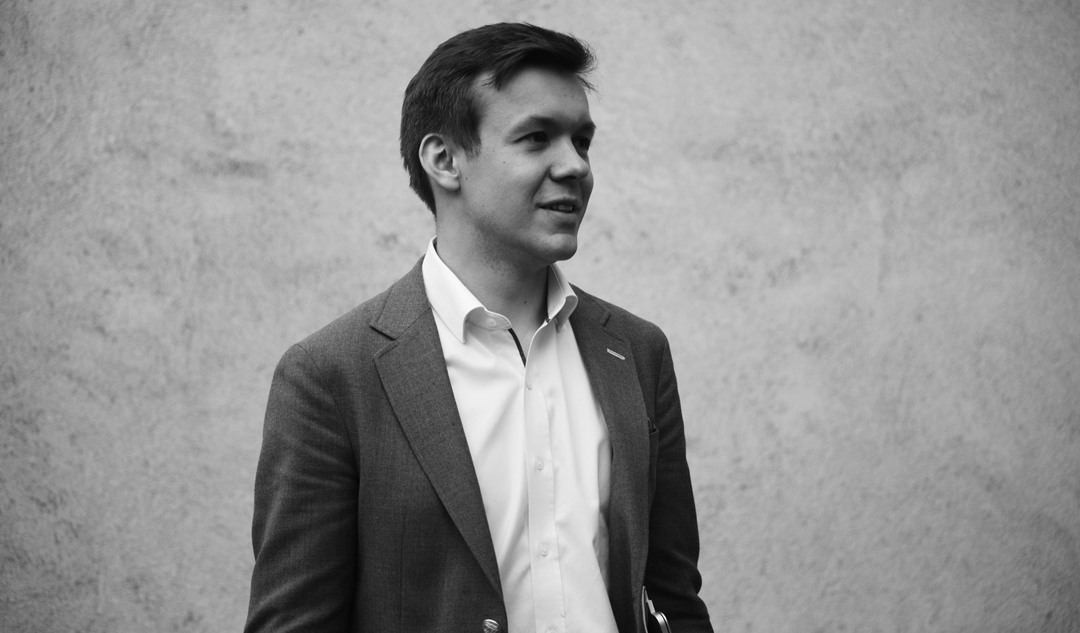
BRINGING PETS TO THE INTERNET
Question: What has been achieved since the creation of Petcube, and how it looks now?
Answer: When we founded the company, we were faced with the question: "Okay, we have the idea of a product, a camera with a laser, but can we do business out of it?" We then spent some time studying the issue and figuring out if there was really an opportunity for big business.
In 2011, the Wall Street Journal published a well-known article by Marc Andreessen [an American software engineer, investor, entrepreneur, co-author of Mosaic, the first widely used Web browser] titled "Why Software Is Eating the World." In his article, Andreessen very aptly formulated the trends of global change that come with the technological revolution. His idea was that the whole world would be reinvented, industry by industry, with the use of new software, the Internet, and mobile technologies.
We saw that in the field of mobile goods for animals there are no innovations that were made possible owing to this technological revolution, no strong brand that would have such a trust and unconditional love of people as, for example, Nike in the field of clothing or Apple in the field of electronics. And we saw a huge opportunity in this simple device, a camera for remote communication with a pet. It is important that this is an interactive communication that allows interaction, not just one-sided use of the camera. According to our plan, the device had to become a kind of smartphone for a pet to go online.
Our concept since 2012 was to connect pets to the Internet. When millions of animals are online and there is access to them every second, when it is possible to share them with your friends, and we receive regular information about animals, there will be grounds for creating the platform. On its basis, other players, other businesses will be able to interact with these animals. They will be able to create added value - it follows from the experience of Facebook, Google, later - Uber and Airbnb. This was a hypothesis, and, surprisingly, it is coming true.
Now our mission is to connect the animals to the Internet and give them a voice. The expression "give a voice" means to understand the animals. We have already begun to do so. Last year, we launched a function called "behavioral diagnostics." Thanks to it, we analyze the behavior of animals that we see. After all, we have sold hundreds of thousands of cameras that collect pretty much information. Our algorithms analyze it and are already able to "see" cats, dogs, people, and distinguish between barking and meowing. Now we are trying to recognize abnormalities in their behavior. This will help us recommend that people go to the vet, walk the dog more often, or, for example, increase the activity of the animal if it not active enough.
In the future we want to create three layers of interaction. The first one is physical devices: cameras, smart feeders, smart collars that track the GPS, location and activity of the animal. In addition to the obvious value they give to people, they also collect information about animals. The second layer is an analysis of data, which, in fact, helps understand the language of animals. Well, not the language, but understand the animals. The third layer is specific services and products that we can recommend to animal owners based on the understanding of their pets.
This is a kind of operating system for animals in which we see the future of this industry, and we are gradually building it. We already have physical devices such as Petcube Bites and Petcube Play. With the first one we are working in partnership with a number of animal food manufacturers. We have already reached the level of algorithms and are able to distinguish the computer vision of animals, record their activity. We will soon be able to see abnormal patterns of behavior. Finally, we already have the Petcube Care platform where we cooperate with more than 30 companies selling various cool pet products: insurance, vet services, food, and even less common things, for example, DNA tests for cats and dogs. In fact, this is a kind of App Store for pets.
We see ourselves as the driving force that will bring this industry in the 21st century to where it has to be.
Q: Is that the case that in the process of developing and scaling the business you invent other interesting technologies? For example, when developing algorithms, I anticipate that you are also developing recognition elements?
A: Yes, exactly what is called artificial intelligence. We already have image recognition, computer vision for which we use neural networks. The definition of abnormalies we are developing now is also artificial intelligence.
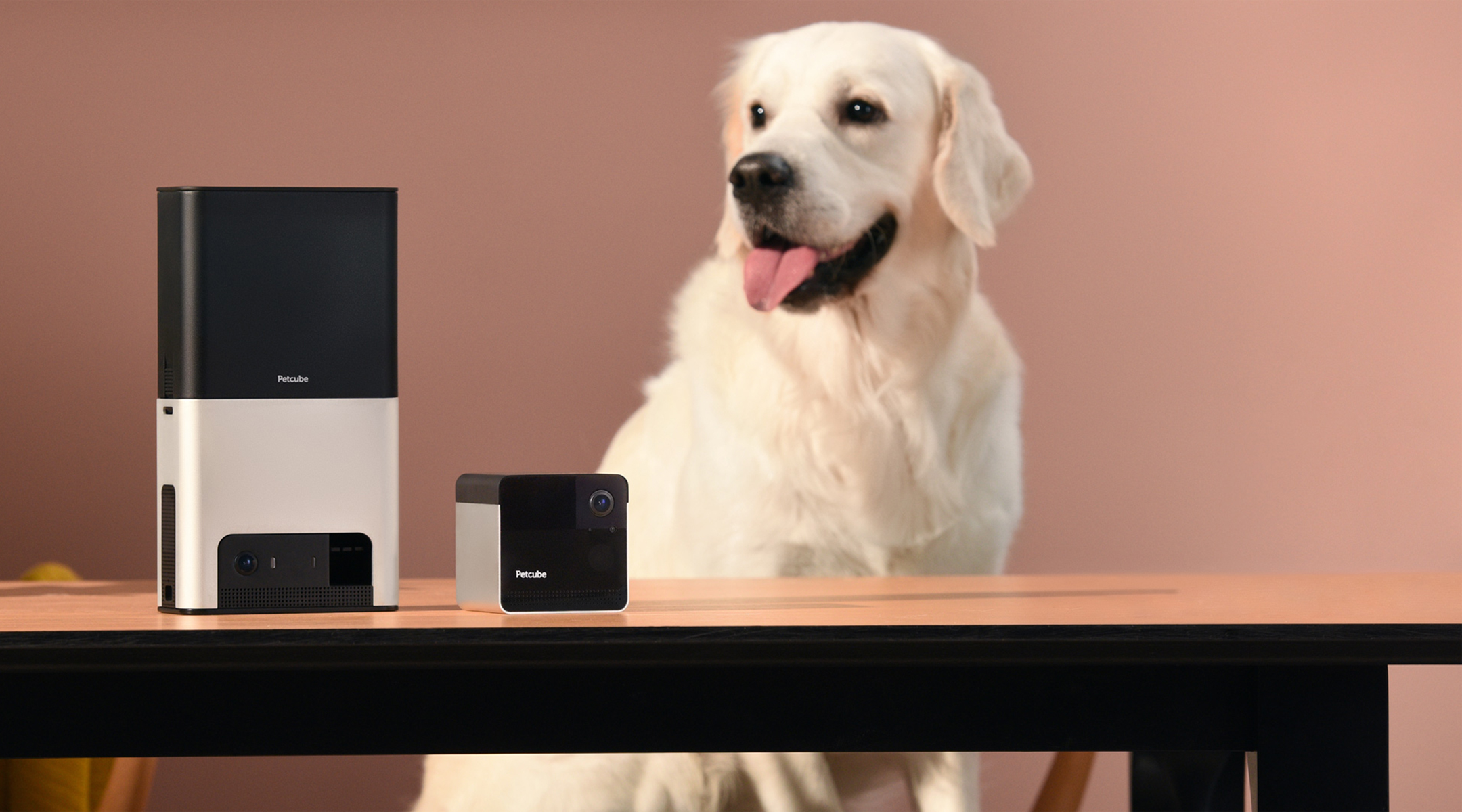
MILITARY, DIPLOMATIC, ECONOMIC FRONTS OF UKRAINE
Q: Petcube was founded in 2012. The Revolution of Dignity started a year later. Did you take part in it?
A: I was on the Maidan physically only for a very short time, in December 2013, after students were beaten up, and up to the main events. In early January 2014, I went to the United States to create a Petcube office. That's when I moved and since then I have spent most of my time here.
Q: Was it difficult to observe events from afar?
A: Of course, it was. I remember very well these days when I was sitting literally stuck to the newswires of Ukrayinska Pravda, Twitter, Facebook, constantly updating them. I could not sleep, work and think of anything else.
For me, as well as for many of us, something most important was happening at that time. I had a strange feeling. On the one hand, you think: "What am I doing here in America? I need to come back and stay with everyone." There's your team sitting there, about 15 people, they are at the office in the daytime and on the Maidan at night.
On the other hand, you understand that, okay, you have the opportunity to create a company that will become a breakthrough for Ukraine, an example for many people, an example of how three guys from Kyiv can create value for the world, without stealing, without privatizing anything, but creating something of their own.
For many people in the country, our experience can be a model for imitation, instead of the conviction "one cannot make a living without stealing," which, unfortunately, still serves as a guide for many Ukrainians who look at corrupt deputies, officials, thieves. One day I was traveling by train, in a Ukrainian platzkart car, and one grandmother told me: "If you were a deputy, you would have stolen too." This, in fact, illustrates what is in people's heads because they do not see other examples. That is why, it is so important that entrepreneurs in a modern Ukraine create cool valuable businesses, show how to succeed in life, be content with what you do, have respect, money, and be happy.
Our team turns to this idea from time to time. There is an economic front in our country, there is a diplomatic front, there is a legal front. Everyone has to create something his or her own for the sake of overall success. There are people who are now on a real military front – for the sake of other people laying the foundation for the future of Ukraine. Events of 2014 affected not only me but our whole team. Now we have to bring our part to the end and show that all this is not in vain.
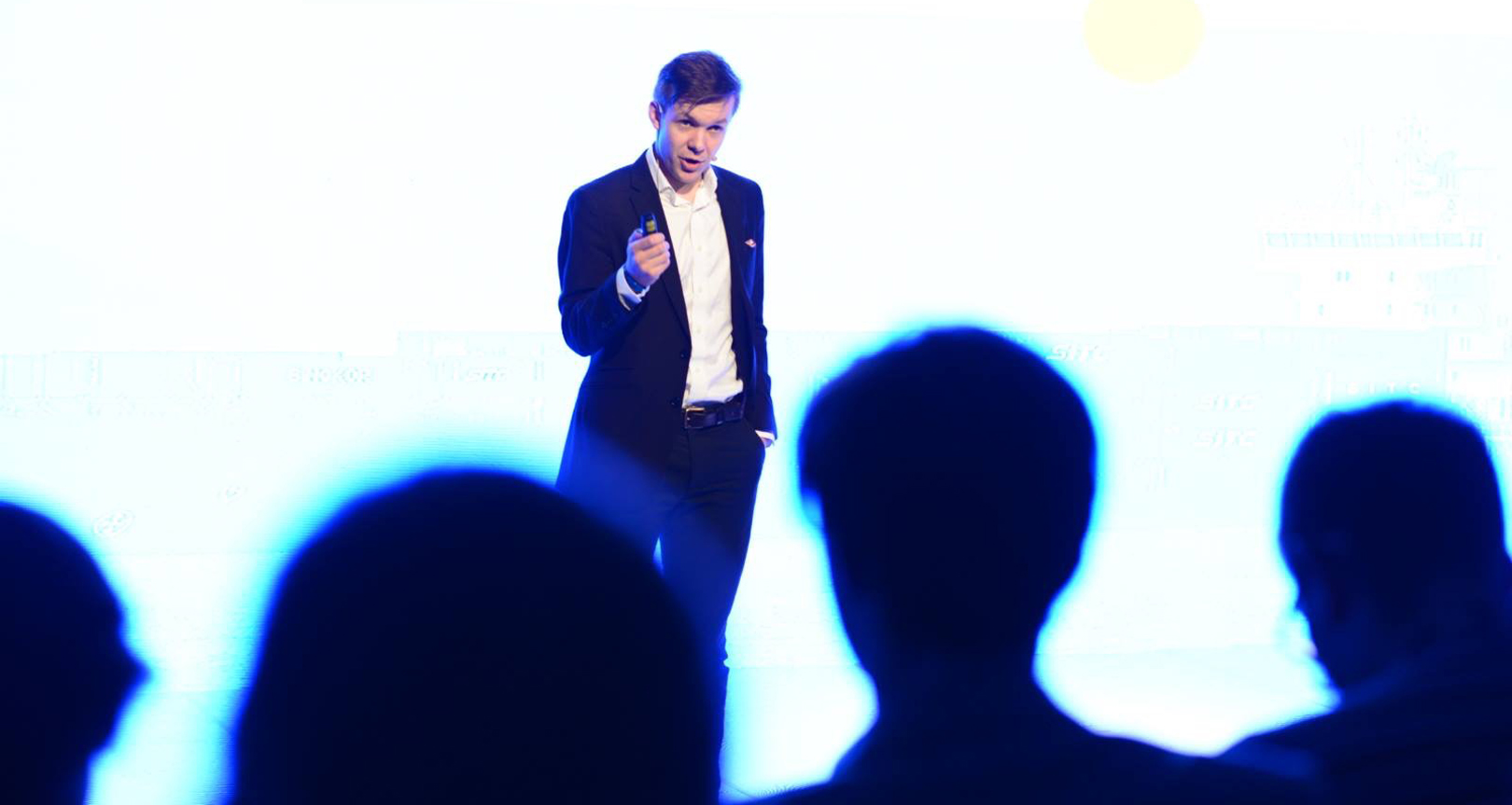
Q: Some say that nothing has changed over the past five years, since the Maidan, and there are also those who say that the situation has only worsened. What do you think?
A: It is impossible to assess these events in terms of bread prices in the store and say that bread allegedly rose in price after the Maidan and the situation only worsened. Of course, the economic situation of a large part of people in the country has deteriorated. This fact cannot be neglected or treated haughtily, alleging that these people do not understand anything. But the question is where the reason is, not the consequence. Was the Maidan the reason? Or were the difficulties faced by Ukraine - the war, Crimea, economic downturn – the result of the systematic collapse of the country by Yanukovych's corrupt government? This is how I see it.
From the historical perspective, Ukraine has in turn shown itself and the rest of the world that it is a country of free people. Some of my Russian friends, to be precise, Russian liberals who have already turned into a sort of archetype, say: "Ukraine is generally a super country but we, in principle, are one people, aren't we?" When they tell met that, I give them some examples that make them think. Ukrainians have historically always been critical of the central government and have tried to keep it under control. This led to better or worse consequences but this tradition goes even from the Drevlians whom Princess Olga took revenge by burning their villages, to the Hetmanate when they said that "there are three hetmans for two Ukrainians," to the Central Rada, and to three Maidans over the past 30 years. Undoubtedly, Ukrainians are going through deep democratic transformations, from the Constitution of Pylyp Orlyk to the events of recent years. Here we are fundamentally different from the Russians, who, on the contrary, are traditionally inclined to recognize government: Tsar, Communists, Putin and so on.
Is this state model more beneficial in the long run? I think so.
I am convinced that all Ukrainians who wish well to their country should think strategically and for the long term. In this scale of thinking, of course, the Revolution of Dignity is an important step forward. The fact that the country is undergoing reforms, that the country received a visa-free regime cannot be ignored. Of course, there are many difficulties. But, you know, people want everything to change with the help of a magic wand in a few years. This is not the case. At the same time, it's normal when there is disappointment among the masses. This is natural.
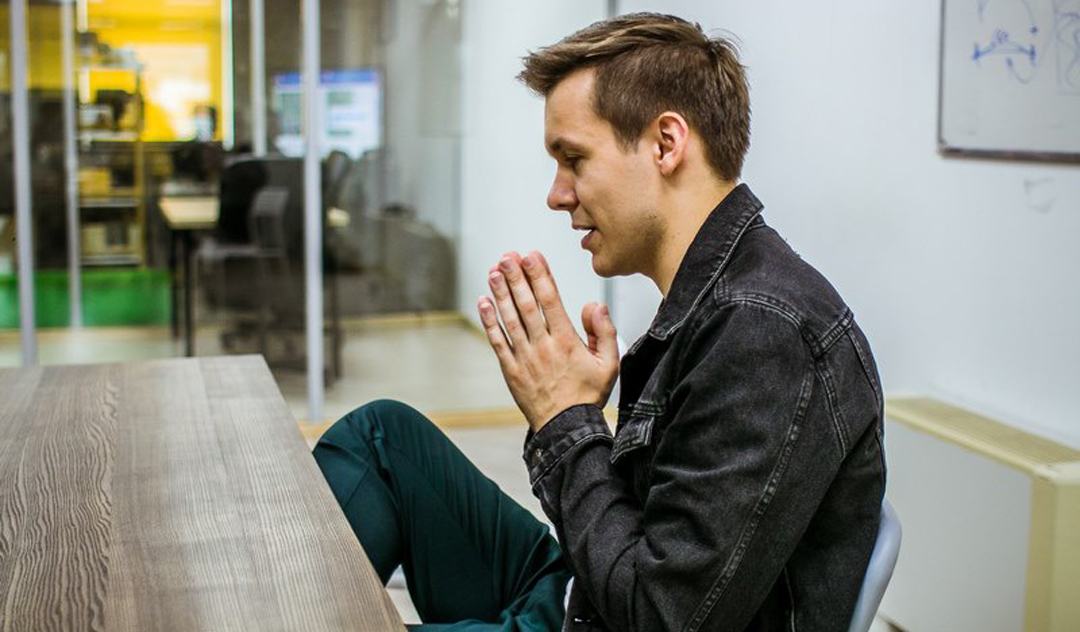
HOW TO DO SO THAT UKRAINE SUCCEEDS?
Q: From the books you read, it's obvious that you share Western values and, in particular, capitalist values. Is capitalism the best model for our state?
A: You know, this, in fact, is a very important discussion, which is a bit lacking in Ukraine, the discussion on models of economics and social structure, where we stay from the point of view of human rights or economic freedoms - left or right.
I cannot say that I totally share the right economic views. Of course, capitalism is the economic model that has won. Here you can learn a lot from the United States and from China. But, first and foremost, each country is individual and must adapt any model to itself. Secondly, when we say that capitalism has won, the question arises "where has it won?" China and the United States are definitely the world's two most powerful economies, which ensures their military power. However, they are not leaders in terms of people's happiness, average salary, and poverty level. There is also a very interesting model of Scandinavian socialism, although it is still unclear whether it will justify itself in the long term or in military terms on a scale of hundreds or thousands of years.
It is necessary to have a strong economy in Ukraine. One of the most obvious steps is to finally remove this unfortunate moratorium on the sale of farmland. There is a wonderful book that we have recently mentioned at an event in New York, titled "How Asia Works," which refers to the jump of "Asian tigers," compares such countries as Indonesia or Thailand, which are not very successful, with, for example, South Korea and Japan. It is the land sales market that was one of the main drivers of their growth, along with heavy industry, a regulated and disciplined banking sector. It is these factors that distinguish the successful "Asian tigers" from the less prosperous countries in Southeast Asia. As for me, this is Ukraine's most urgent economic need. Obviously, both the rule of law and just courts are needed.
Another feature of Ukraine lies in the fact that the potential for the development of small and medium-sized businesses is in our DNA. This phrase, "There are three Hetmans for two Ukrainians," in fact, testifies to the fact that Ukrainians want to do their work. If we create normal conditions, or if we just do not interfere and remove barriers, we can get very interesting results.
At the same time, a number of areas require protectionism. Another wise saying states: "Don't do what the Britons tell you to do but do what they did before they began to tell you what to do." One cannot foolishly run and follow all the instructions.
Q: From your own experience, have the conditions for doing business in Ukraine improved or worsened since 2014?
A: You mean whether the conditions for Petcube in Ukraine have improved or worsened?
Q: Yes, from your own observations. Environment. Opportunities. Corruption. Do you face corruption?
A: Surely not. Zero cases. Well, very rare. There were some delays at the customs. But we said that we would not pay anything so there were no bribes.
Q: Some people say that it is simply impossible to work in Ukraine because corruption and obstacles are everywhere. Is it not the case with your company?
A: We did not have that. Of course, some businesses face corruption more often than we do.
Perhaps, of course, there can be the position of "a fighter for justice": "Enough, there's bribery here, I will not work, I will not develop business, I flee from this country." As for me, this is the position of weak people. The position of strong people is to seek opportunities, even realizing that sometimes it will be necessary to reach a compromise. I understand that my position may be unpopular among some fighters for justice but I am sure that we must fight for the final result.
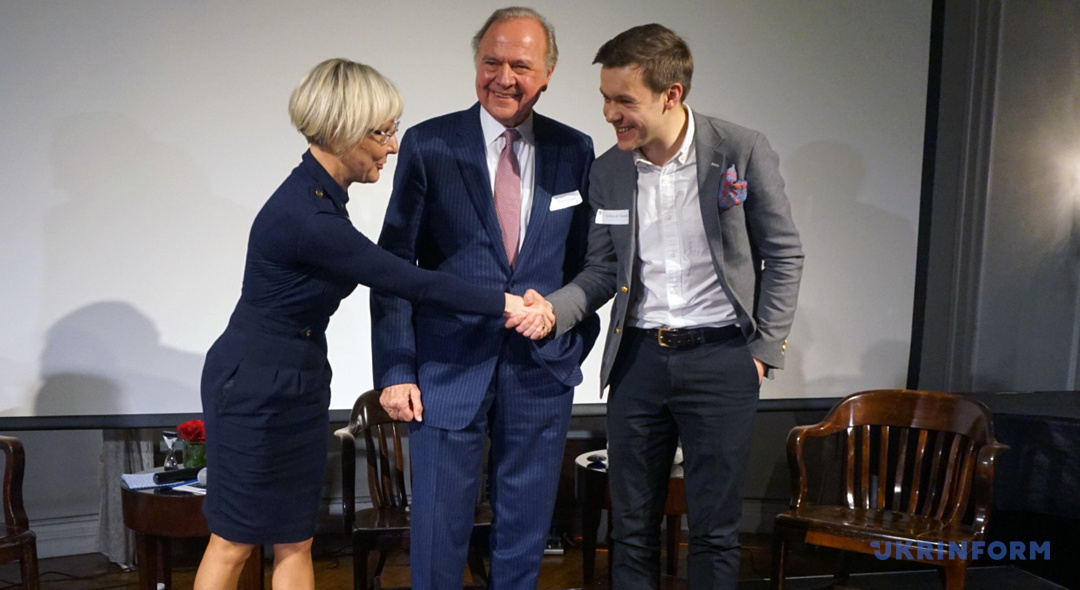
CREATING SOMETHING VALUABLE TO THE WORLD
Q: Which values are important to you and which ones to Ukraine?
A: Mankind was thinking about values for thousands of years, and they formed the basis of all global religions. I am a Christian by birth and upbringing. Christian values and commandments are close to me. I regard the Ten Commandments and the Seven Deadly Sins when I think how the world works, or what drives me to action, what temptations can wait for me.
I think this is a good valuable guideline and whats syncs the whole country. It is mostly Christian. There are also Crimean Tatars but Muslim values, in general, are not too far from the Christian doctrine.
To be happy, a person one has to create something that is valuable to the world. It's about a bit something broader than "values." Creating something valuable to the world entails a number of wonderful side effects. It brings happiness and pleasure from life. It brings benefit and happiness to other people. This, as a rule, brings money to a person who has created value for the world. This brings respect from other people. It seems to me that when people live, trying to do something valuable and good to the world, they are happy. One of my good friends said: "Money, glory and power are three things that will never make you happy." All of them should be a side effect in creating something valuable to the world. While creating something valuable, one must remember the Ten Commandments – "You shall not kill", "You shall not steal" and so on.
Q: What book can you recommend to our readers?
A: "High Output Management" by Andrew Grove. This is the best management book among those I read. I think it should be read by every manager, regardless of the level. Andrew Grove is the CEO of Intel, a Hungarian emigrant who arrived in New York at the age of 19. Not knowing the language, he studied at a difficult physics faculty. He became one of the founders of Intel and headed the company when it was prospering and was was one of the most powerful global corporations. Doing so, he also had the time to write a book. He is a famous person. An ideal and mentor for many Silicon Valley entrepreneurs, including Mark Zuckerberg. When his wife asked him what kind of book he could recommend to read, Zuckerberg mentioned this one.
Q: Do you suppose that you will be engaged in politics in Ukraine?
A: I would not rule out that. Perhaps. I think I will be engaged in what is more beneficial. Of course, I am interested in social and political life in Ukraine. Now, I can bring Ukraine more profit by doing business.
Heorhii Tykhyi, New York
